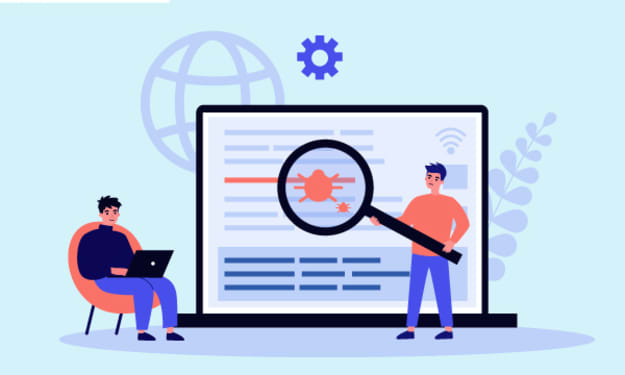The Future Of Technology: How Innovation Will Change Our Lives
Exploring The Boundless Possibilities Of Technological Advancement

Technology's future is an intriguing and quickly changing environment. With each passing day, we are witness to new advancements in technology that are changing the way we live our lives. From self-driving cars and virtual reality to artificial intelligence and the Internet of Things (IoT), the possibilities of technology are limitless. In this article, we will explore the ways in which technology is set to shape our world in the coming years and how innovation will change our lives.
Part 1: Technology and the Future of Work
Technology is rapidly transforming the way we work, and the future of work is set to be vastly different from what we know today. Automation, artificial intelligence (AI), and other technological advancements are already reshaping the workplace, and these changes will only accelerate in the coming years.
The potential for automation is one of technology's most significant effects on the nature of work in the future. Advances in robotics and AI are making it possible for machines to perform a wide range of tasks that were once the sole domain of human workers. This has the potential to lead to job displacement in certain industries, particularly those with routine and repetitive tasks.
However, automation is also creating new opportunities for workers. In many cases, the adoption of automation technologies is leading to the creation of new jobs that require different skills, such as those related to the development and maintenance of the technology itself. Additionally, automation is freeing up human workers from routine tasks, allowing them to focus on more creative and complex work that machines cannot yet perform.
Another significant impact of technology on the future of work is the rise of remote work. Advances in communication and collaboration technologies are making it easier for workers to work from anywhere, and this trend is likely to continue in the coming years. The COVID-19 pandemic has accelerated the adoption of remote work, and many companies are now considering making it a permanent option for their employees.
The growth of the gig economy is altering how work is done. Platforms like Uber, Airbnb, and TaskRabbit are creating new opportunities for workers to earn money on their own terms, without the constraints of traditional employment. However, the gig economy also raises concerns about job security, benefits, and workers' rights.
More changes to the way we work are likely to come in the future. The continued development of AI and robotics will lead to further automation, and the rise of the Internet of Things (IoT) will create new opportunities for workers to engage with technology in their work. We can also expect to see an increased focus on upskilling and reskilling workers, as the skills required for certain jobs change rapidly due to technological advancements.
In order to navigate the changing landscape of work, it is important that workers and employers alike embrace a growth mindset and a willingness to learn and adapt to new technologies. Companies should invest in training programs to help their employees develop the skills they need to succeed in the new technological landscape. Governments and policymakers must also consider the potential impact of technological advancements on the labor market and work to create policies that ensure workers are not left behind.
In conclusion, technology is rapidly transforming the nature of work, and the future of work will be vastly different from what we know today. Automation, remote work, and the gig economy are just a few examples of the ways in which technology is reshaping the workplace. However, with the right investments in training and policy, we can ensure that workers are prepared for the changing nature of work and that we can all benefit from the opportunities that technology presents.
Part 2: Technology and Healthcare
Technology has had a significant impact on the healthcare industry in recent years, and this impact is only expected to increase in the future. From advances in medical imaging to the use of artificial intelligence in diagnosing and treating patients, technology is transforming the way healthcare is delivered, improving patient outcomes, and reducing healthcare costs.
One of the most significant technological advancements in healthcare is the use of electronic health records (EHRs). EHRs have replaced traditional paper-based medical records, making it easier for healthcare providers to access patient information, track patient progress, and share information between providers. This has resulted in more coordinated care and improved patient outcomes, as providers are better able to work together to develop treatment plans and monitor patient progress.
Medical imaging is another area where technology is making a significant impact. Advances in imaging technologies, such as magnetic resonance imaging (MRI), computed tomography (CT), and ultrasound, have enabled healthcare providers to more accurately diagnose and treat a wide range of conditions. These technologies have also reduced the need for invasive procedures, such as exploratory surgeries, which can be costly, time-consuming, and pose risks to the patient.
The use of telemedicine is also becoming more widespread, particularly in rural areas where access to healthcare can be limited. Telemedicine enables healthcare providers to consult with patients remotely, using videoconferencing and other technologies. This can reduce the need for patients to travel long distances to receive care and can improve access to specialists in areas where they may be in short supply.
Artificial intelligence (AI) is also poised to revolutionize the healthcare industry. AI algorithms can be used to analyze large amounts of medical data, such as patient records and medical images, to identify patterns and make predictions about patient outcomes. This can help healthcare providers to diagnose conditions more accurately and develop more effective treatment plans. AI is also being used to develop new drugs and therapies, with the potential to significantly improve patient outcomes.
However, the use of technology in healthcare also raises concerns about privacy and data security. EHRs and other technologies store large amounts of sensitive patient information, and there is a risk that this information could be accessed or used inappropriately. Additionally, the use of AI in healthcare raises ethical questions about the use of algorithms to make decisions about patient care.
In conclusion, technology has had a significant impact on the healthcare industry, and this impact is only expected to increase in the future. From electronic health records to medical imaging and telemedicine, technology is transforming the way healthcare is delivered, improving patient outcomes, and reducing healthcare costs. However, it is important that healthcare providers and policymakers work together to ensure that technology is used ethically, and that patient privacy and data security are protected.
About the Creator
Kingsley Osevwe
I'm a multi-faceted entrepreneur, coder & writer, and sought-after business coach with expertise in internet marketing, farming & passive income streams. I've built websites for businesses & trained many to earn online.






Comments
There are no comments for this story
Be the first to respond and start the conversation.